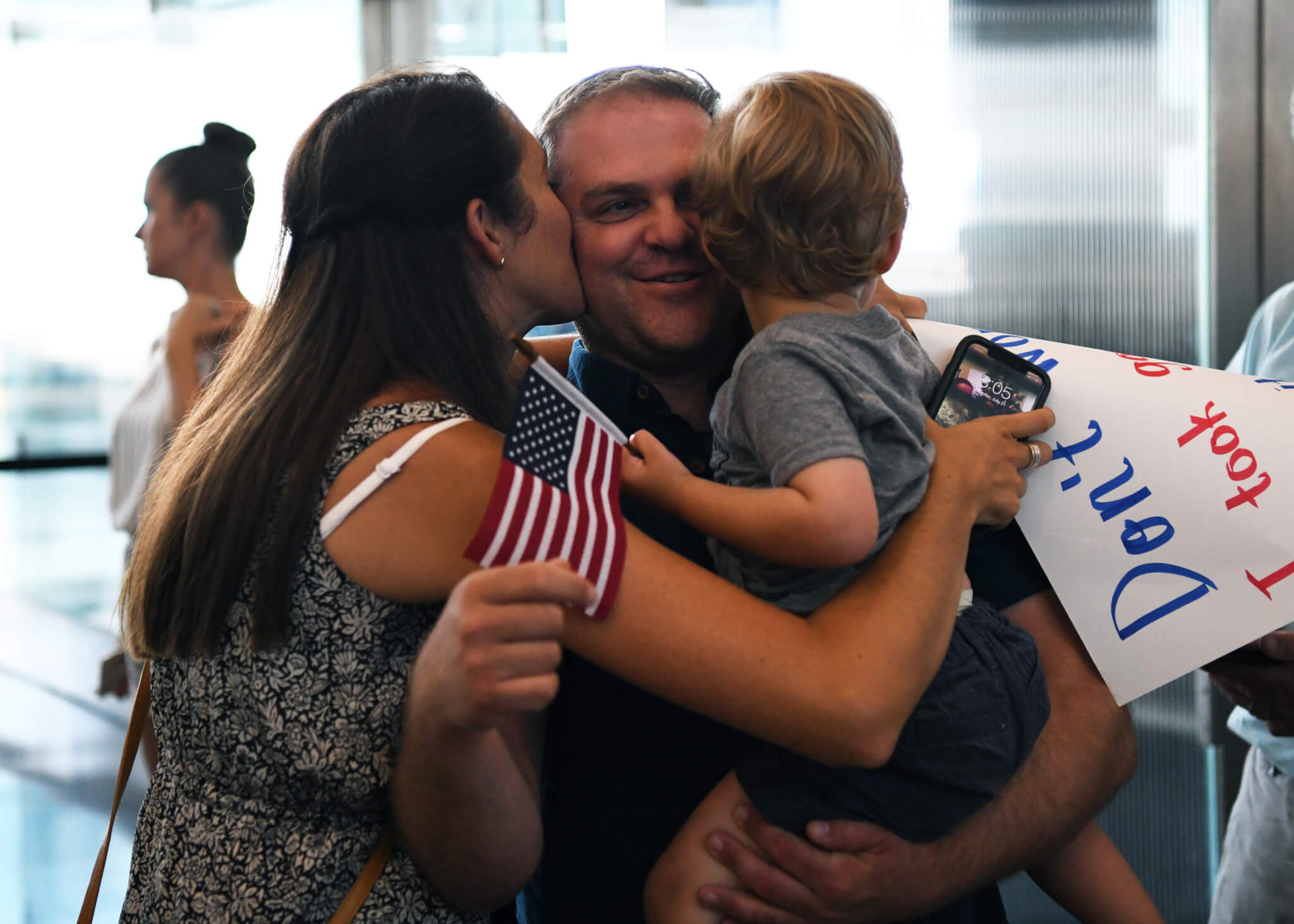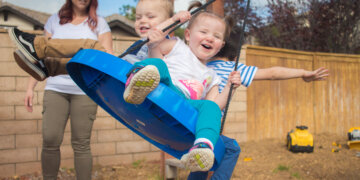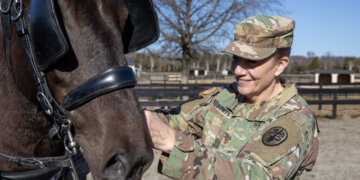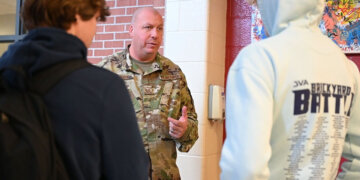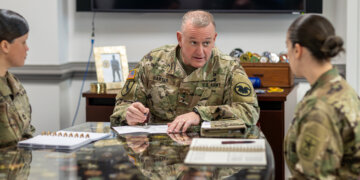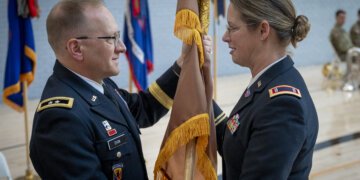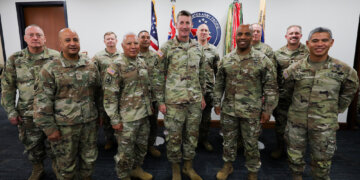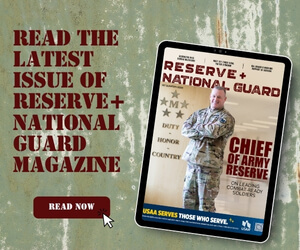This time was different. As a career airman, I’ve amassed a ton of time away from home, but in the past, my wife and I were much more cavalier about my trips. We never imagined that, one day, reintegration for me would be such an important and transformational occasion. Now, as a dad, the stakes were raised for my recent return home from a deployment. I am excited to share how my wife and I navigated my return home because, now being two months removed, it appears we did it well and enjoyed a successful transition as a family.
Here is what worked for us:
Use the resources made available to you.

Each wing in the Air National Guard and Air Force Reserve has an Airman and Family Readiness Program whose mission it is to support you and your family. Army units have similar programs. My wing is fortunate to have Kelly Williamson, a licensed master social worker, directing our program.
“The program provides deployment cycle support through briefings, Yellow Ribbon Events, newsletters, resource and information referral, and social events,” she said.
Kelly gave other airmen and me great tools for success prior to departing and gave us hope that everything will be OK throughout the process.
Consider your transition home as an event in its own right.
It’s an event that needs planning, and preparation. I’m sure there was a healthy amount of planning prior to heading out the door for your TDY or deployment so try to give your return home the same time and energy.
Don’t assume everything will work itself out and fall into place. With yourself, and then with your loved ones, begin to envision what your return looks and feels like. Ask yourself, what are your priorities, what are your needs, what are the needs of the people closest to you? As you plan, remember that the people you’ve left behind to fend for themselves deserve to have their desires heard as well. Through honest communication, my wife and I were able to create a plan for my transition that focused on our collective needs as a family but also our individual needs as husband and wife.
Take it slow once you are home.
Getting prepared for my return home was a big focus of mine in the weeks prior to the end of my deployment and during that time I kept focusing on the words of my deployed squadron commander. Her consistent advice to her troops was to take it slow when we got back home. She meant to do that both physically and emotionally.
Physically taking it slow means not planning any events or travel for at least the first few days after getting home. You should get your feet firmly back on familiar ground before you venture off to another place or join a frenetic event. My wife and I were certain to plan a family vacation so she, the kids and I could create some wonderful fun memories but we were careful to plan the vacation for two weeks after I returned home. Also, try your best to avoid the pull to accomplish your entire to-do list in the first few days as well. Yes, there will be tasks to complete but I can assure you, none of them are as important as spending valuable peaceful time with your loved ones.
Emotionally taking it slow means to engage with your loved ones in deliberately understanding way. You’ve hopefully spent considerable time preparing emotionally for your return home but it may not be the case that your loved ones were able to do that same prep work. It may sound crazy because you’ve just returned from a long period of absence but try to grant your loved ones some time and space to reacquaint themselves to your reemergence back into their daily lives. You might find yourself asking for the same time and space for yourself if someone close to you is coming on strong. Just know that it’s OK to ease into your relationships once again. Pretend as if you are using the steps getting into a pool as opposed to jumping in like a cannon ball making waves.
My reintegration wasn’t without some minor hiccups but I feel it was successful and even transformational. My wife and I used resources, planned my return home in advance, and took it slow once I did get home.
“Despite challenges and struggles, the deployment is an opportunity to strengthen the family unit. Family members and deployers alike often grow in love, communication, and appreciation for each other following a deployment,” Williamson added.
Read comments



